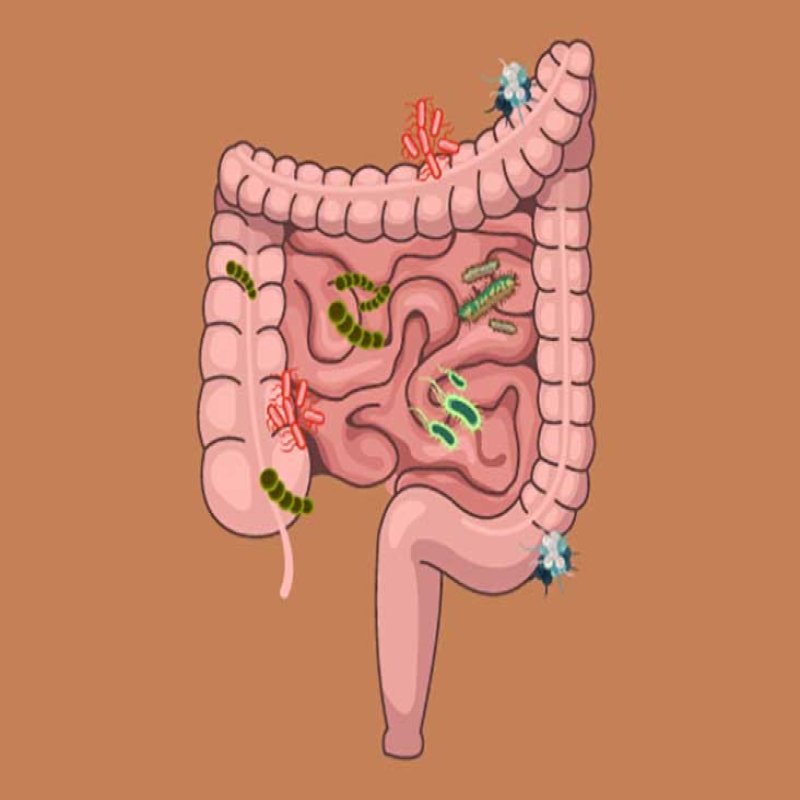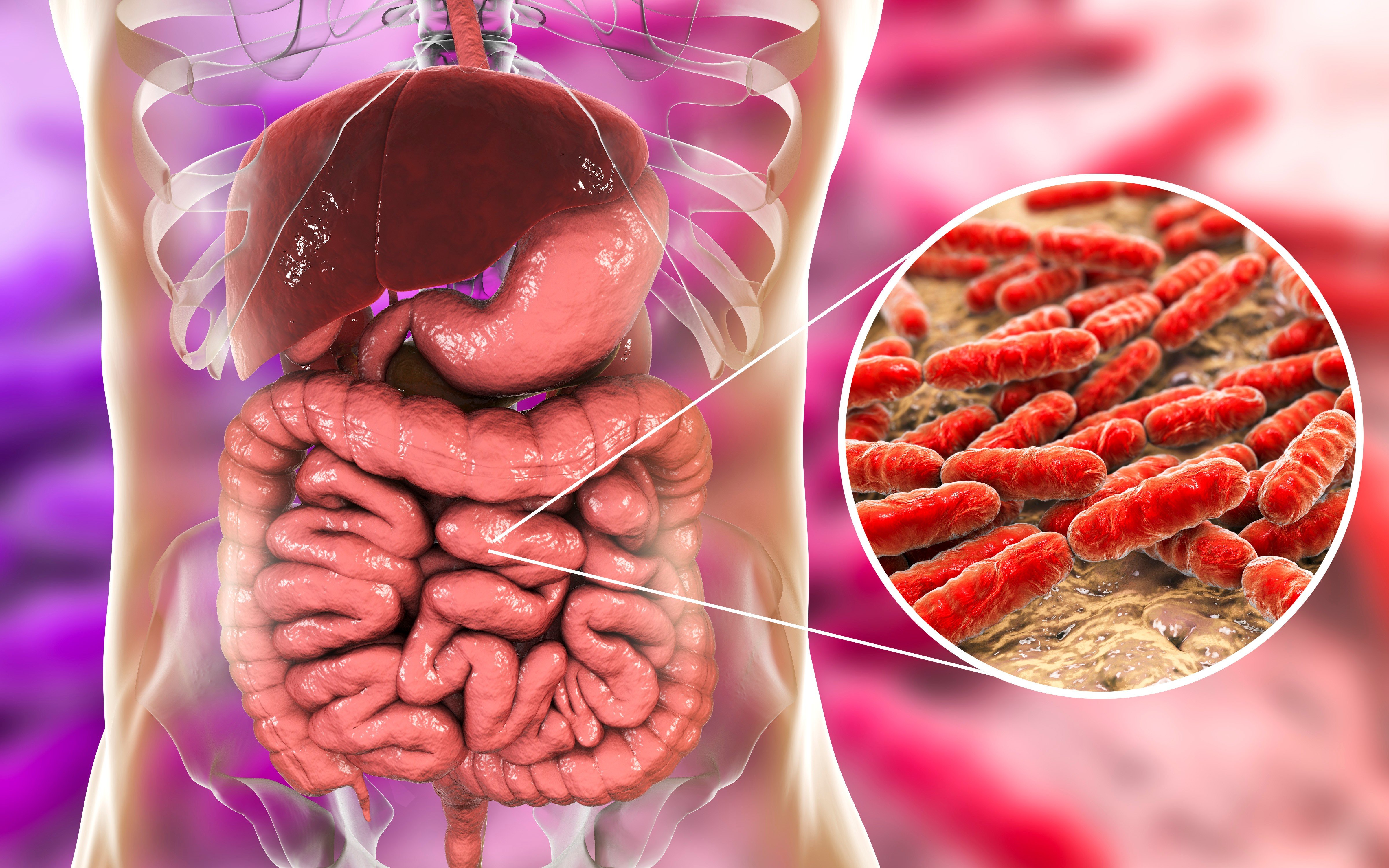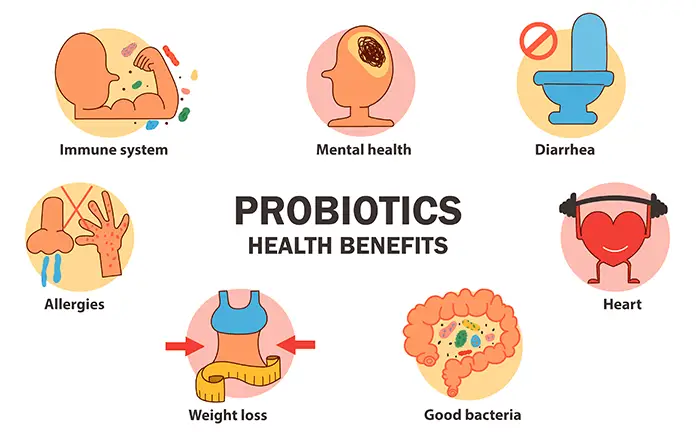
“If there’s one thing to know about the human body, it’s this: the human body has a ringmaster. This ringmaster controls your digestion, your immunity, your brain, your weight, your health, and even your happiness. This ringmaster is the gut.”
― Nancy Mure (underlining the importance of gut health)
I can call 2018 the year of gut health. There has been a lot of buzz in the nutrition world lately about the "microbiome," "microbiota,” or the so-called living organisms in your gut. Nearly 70% of our immune system lies in our gut. It’s a known fact that the relationship between our gut and everything, ranging from being overweight to irritable bowel syndrome, human behavior, and mood, is currently being studied. We need to understand what a good gut does to our health ecosystem and how it can be improved through lifestyle modifications, including prebiotics and probiotics.
Why is Maintaining Gut Health Important?
If there’s one thing to know about the human body, it’s this: the human body has a ringmaster. This ringmaster controls your digestion, your immunity, your brain, your weight, your health, and even your happiness. This ringmaster is the gut. The digestive system as a whole, which we refer to as the gut, breaks down food, assimilates it, absorbs it, digests it, and then eliminates the unwanted waste.

Any breakdown in this process will lead to illness, and if it’s persistent, then it will manifest as a disease. We all know that food is energy. The energy is utilized the way it should be by our gut. So, in a nutshell, whatever activity you are able to do, you are able to do it because of your gut. Over a period of time, with constant abuse of our gut through toxins, bad food choices, lifestyle mismanagement, etc., we may develop Leaky Gut Syndrome or Intestinal Permeability.
Gut health is affected by Leaky Gut Syndrome, which happens when the intestinal lining is compromised and it starts leaking. This results in undigested food, waste substances, toxins, and unwanted bacteria leaking through the gut and mixing in with the bloodstream. This leads to an inflammatory response being evoked by the body. This inflammatory response can manifest as migraines, IBS (Irritable Bowel Syndrome), fatigue, skin conditions like eczema, psoriasis, and much more.

How to Improve Gut Health?
In a majority of the cases, this is caused by food, so to fix the issue, fix its root cause! There are 3 important steps for a healthy gut:
- Eliminate
- Repair
- Replace
Eliminate
For a healthy gut, pay attention to the foods your body is sensitive to. You can get a test done to determine which foods your body is sensitive to. You can also follow a diet known as an elimination diet to find out which foods your body is sensitive to. In an elimination diet, you eliminate the most common inflammatory foods from your diet and then add them back sequentially to see if you react. Control the consumption of dairy and sugar. High sugar and dairy consumption cause havoc in the gut flora and disturb the dense microbial colonies. This is because, nowadays, dairy products contain a lot of antibiotics and growth hormones, and the casein present in dairy is not easily digestible by the body.

Repair
The key to a healthy gut begins with healing your gut. Heal your gut with foods like high-quality bone broth, fermented foods, fresh fruits such as berries, etc.

Replace
The healthy gut contains both good and bad bacteria, and your body is capable of living in perfect harmony with both of them. However, if this delicate balance is compromised and is currently under repair, the next phase would be to replenish the lost microbial colonies. Replenish your gut microbes with Prebiotics and Probiotics daily.
Prebiotics
Prebiotics are non-digestible food ingredients that stimulate the growth of the bacteria that are already present in the gastrointestinal (GI) tract. These bacteria are beneficial for the overall health of the body.
Some prebiotic foods are onion, garlic, asparagus, leeks, banana, tomato, oatmeal, legumes, and artichoke.
The amount of probiotics and enzymes available in the average diet has declined sharply over the last few decades as pasteurized milk has replaced raw milk, pasteurized yogurt has replaced homemade yogurt, and vinegar-based pickles have replaced traditional homemade pickles. Instead of the nutrient-rich foods full of enzymes and probiotics that our grandparents probably consumed, the average diet today consists mainly of sugar-laden, lab-created dead food. This is one of the biggest reasons for compromised gut health in the majority of the population today. By fixing gut health, one can control a lot of diseases and even reverse them with ease.
Probiotics
Probiotics contain live cultures of specific strains of bacteria that confer health benefits to the host, which in this case happens to be us!
There are a variety of ways in which probiotics can help us:
Probiotics might:
- Aid good bacteria colonies and help them grow
- Contain the growth of bad bacteria, thus stabilizing the gut’s barriers against undesirable creatures
- Help reach the desired homeostasis of the digestive tract after being disturbed (for example, by an antibiotic or a disease)
- Stimulate the immune response
Some of the best probiotic foods are:
- Fermented beverages such as kombucha, kanji, etc.
- Cultured dairy products such as yogurt, cottage cheese, kefir, etc.
- Fermented grains such as tempeh, fermented rice, etc.
- Cultured non-dairy products such as soy/coconut yogurt, kefir, etc.
- Fermented vegetables such as sauerkraut, kimchi, beets, pickles, etc.
- Fermented soy, such as miso, natto, soy sauce, etc.
If you are buying probiotics from outside, always look for products that contain “live culture” over foods that are pickled in vinegar or are pasteurized.
How do Prebiotics and Probiotics Improve Gut Health?
Besides the fact that they taste great and really grow on you, there are several great reasons to start making and eating fermented foods. Some of them are:
Probiotic and Prebiotic Food Introduce Beneficial Bacteria into Your Digestive System
Eating and drinking fermented foods like kombucha and sauerkraut will introduce beneficial bacteria into your digestive system. This will improve your gut health by maintaining the balance of beneficial bacteria. Probiotic foods can help slow or reverse some diseases, improve bowel health, aid digestion, and improve immunity.
Probiotic and Prebiotic Food Promote Better Food Absorption.
Having the proper balance of gut bacteria and enough digestive enzymes helps you absorb more nutrients from the foods you eat. Pair this with a daily healthy diet, and you’ll be absorbing much more nutrients from your food. You won’t need as many supplements and vitamins as you did before. You’ll be absorbing more live nutrients from your food!
Probiotic and Prebiotic Food is budget-friendly
Incorporating healthy foods into your diet can get expensive, especially with the recent fads surrounding “organic” food. However, this is not the case with probiotics and prebiotics.

Conclusion
Maintaining a healthy gut is essential for overall wellness, from improving digestion and immunity to enhancing mood and preventing chronic diseases. By incorporating prebiotics, probiotics, and gut-friendly foods into your daily routine, you can restore balance to your microbiome and support your body's natural healing processes. Understanding the connection between gut health and other health issues, like Leaky Gut Syndrome, empowers you to take control of your well-being through informed dietary choices. Prioritizing gut health through lifestyle modifications is an investment in long-term vitality, mental clarity, and overall happiness.


.png)


